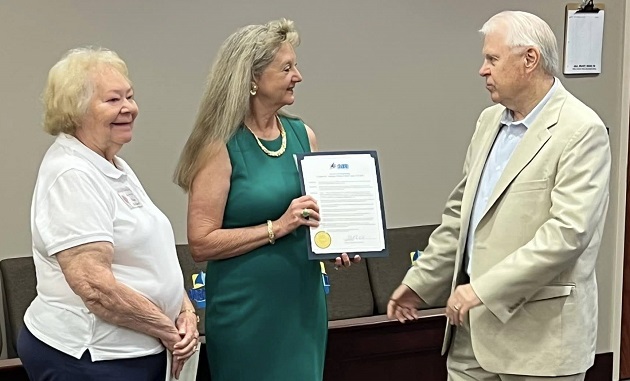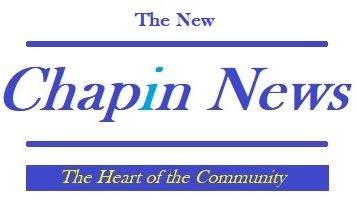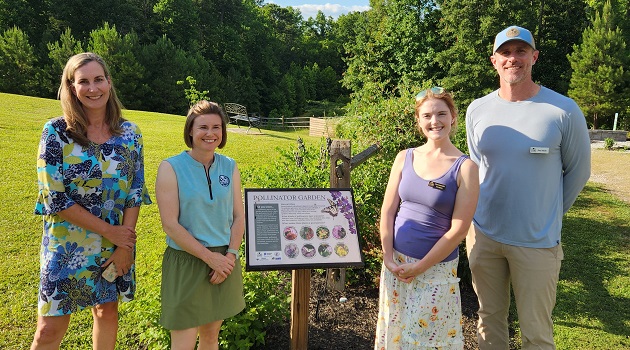Chapin Town Hall, with its public nature trail and 70-foot Carolina Fence pollinator garden, recently hosted a celebration marking Chapin’s new designation as a Certified Community Wildlife Habitat. The event, organized by the Chapin Garden Club and the South Carolina Wildlife Federation (SCWF), highlighted the town’s commitment to creating a more wildlife-friendly environment.
The ceremony began with opening remarks from SCWF Executive Director Sara Green and Cindy Chin, Chapin’s Community Wildlife Habitat team leader. Mayor Albert Koon also addressed attendees, officially proclaiming June 18 as Chapin’s Community Wildlife Habitat Day. Following the ceremony, Jay Keck, SCWF’s Industry Habitat Manager, led a tour of the pollinator garden and nature trail.

The event also featured remarks from Kelly Long, Wildlife Habitat Chair of the Garden Club of South Carolina, and David Stoudenmire, Jr., President of the Garden Club of South Carolina. William Slaunwhite, Treasurer of the South Carolina Bluebird Society, also spoke, and the Eaglets Making an Impact Club from Chapin Elementary School presented a video on how to certify a wildlife habitat.
Chapin’s certification marks it as the 13th Certified Community Wildlife Habitat in South Carolina, joining more than 300 communities across the country dedicated to enhancing local environments for wildlife. The National Wildlife Federation’s Community Wildlife Habitat program encourages communities to use native plants and sustainable land management practices to support local wildlife.
To achieve this certification, the Chapin Garden Club played a pivotal role by helping to certify nearly 200 properties as Certified Wildlife Habitats. They also led efforts to install bluebird nesting boxes, create pollinator gardens, and engage local schools, libraries, and churches in educational activities focused on habitat restoration.
The 70-foot Carolina Fence pollinator garden at Chapin Town Hall serves as a sanctuary for bees, butterflies, and other wildlife, and provides a demonstration site for residents to learn how to create similar habitats in their own yards. Cindy Chin and the Chapin Garden Club spearheaded this initiative, under the project name “Chapin Goes Green,” when they registered their community in June 2021.
“Chapin Garden Club is pleased to partner with the SC Wildlife Federation and the citizens of Chapin to ensure that the entire Chapin area meets standards to be certified as a Community Wildlife Habitat,” said Cindy Chin. She emphasized the importance of projects like creating pollinator gardens and mentoring local students, which have helped create a network of certified backyards forming a pollinator-friendly corridor in Chapin.
South Carolina’s rich biodiversity is under threat from pollution and habitat loss due to development. By creating or enhancing wildlife habitats, individuals and communities can make a significant impact, fostering environments that benefit both wildlife and people.
For those interested in learning more about certifying a wildlife habitat, visit scwf.org/habitats. For additional information on Community Wildlife Habitats, contact Savannah Jordan, Habitat Education Manager for the South Carolina Wildlife Federation, at savannah@scwf.org.



